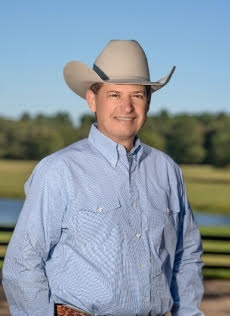OP-ED: The need for rural broadband is real
Published 7:33 am Thursday, February 4, 2021
|
Getting your Trinity Audio player ready...
|
Of all the issues advocated for by the Texas and Southwestern Cattle Raisers Association, the need for high-speed, broadband internet is a relative newcomer, at least compared to topics like cattle theft and water rights that stretch back more than a century.
Even though the widespread need for broadband internet has only emerged in the last decade or so, its importance to everyday life is undeniable. Today, Americans rely more than ever on this connectivity for essential services like business, education, healthcare, and shopping for basic goods and services. The need for high-speed internet extends to all walks of life, whether you live in the most densely populated city or the most remote corner of the country.
Broadband is now an essential service, and there has been a dramatic shift toward virtual solutions for educators, healthcare providers and businesses across the country in recent years. The business of producing cattle is shifting online too. We are increasingly monitoring markets from our computers, using online auctions to buy and sell cattle, managing our data in the cloud and obtaining essential goods and services from the online marketplace.
It’s becoming more difficult for cattle producers to stay competitive without broadband access, and it’s also impacting our families. Without broadband, our children miss out on vital educational resources and opportunities. As a result, broadband availability is becoming an important factor as young families decide where to put down roots, which often means abandoning rural communities in the process.
The growing rural healthcare crisis is also made worse by the lack of broadband in certain areas. It’s challenging to recruit healthcare providers to come to rural communities when the lack of high-speed internet hinders their jobs and families. It also prevents us from utilizing alternatives, like virtual doctor’s appointments, which can make up for fewer medical professionals in the local community.
There are already widespread problems associated with a lack of broadband, and if left unaddressed, it will only worsen as more and more functions of daily life move online. The coronavirus pandemic has only accelerated this shift, but fortunately, it has also placed a spotlight on the need for timely, meaningful solutions.
The issue has risen to national importance, especially amid COVID-19, but it is also an important topic for the 87th Texas Legislative Session that convened in January. Fortunately, the Texas Legislature can take numerous steps to spur an increase in broadband availability across the state without harming private property rights or having to spend enormous sums from the Texas budget.
One area especially worthy of further investment is good data and mapping to determine what areas of the state are unserved or underserved by broadband internet providers. Texas must also develop a plan for how to help these areas. The adoption of a state-wide plan is not only commonsense to help everyone prioritize and work together, but it is also necessary to take advantage of federal funds that are available to help.
Of course, like electricity, the availability of broadband internet requires infrastructure. Fiber-optic lines are essential to delivering broadband and may very well require new or revised utility easements with property owners to extend service to new areas. It will be crucial to protect and balance private property rights with the adequate availability of high-speed internet as an essential service.
The Texas and Southwestern Cattle Raisers Association has already been engaged on the broadband issue. During the previous Texas legislative session, the association worked with stakeholders and ultimately supported legislation passed and signed by the governor to help electric cooperatives provide broadband service.
In the coming months of the current legislative session, we will again work diligently with Texas lawmakers to encourage broadband availability across the state, all while protecting the private property rights we hold dear.
While many underserved areas fall within rural communities, the need for broadband is far from a rural issue. Wherever you live, I hope you will join me in encouraging your Texas Senators and Representatives to prioritize this issue during the remainder of their time in Austin.
Carl Ray Polk Jr. lives in Lufkin, Texas, and operates ranches in Angelina and Houston counties. Polk was elected as second vice president of the Texas and Southwestern Cattle Raisers Association in 2020.






